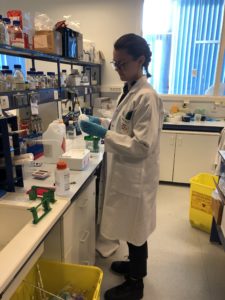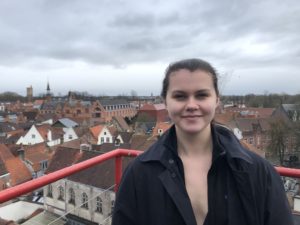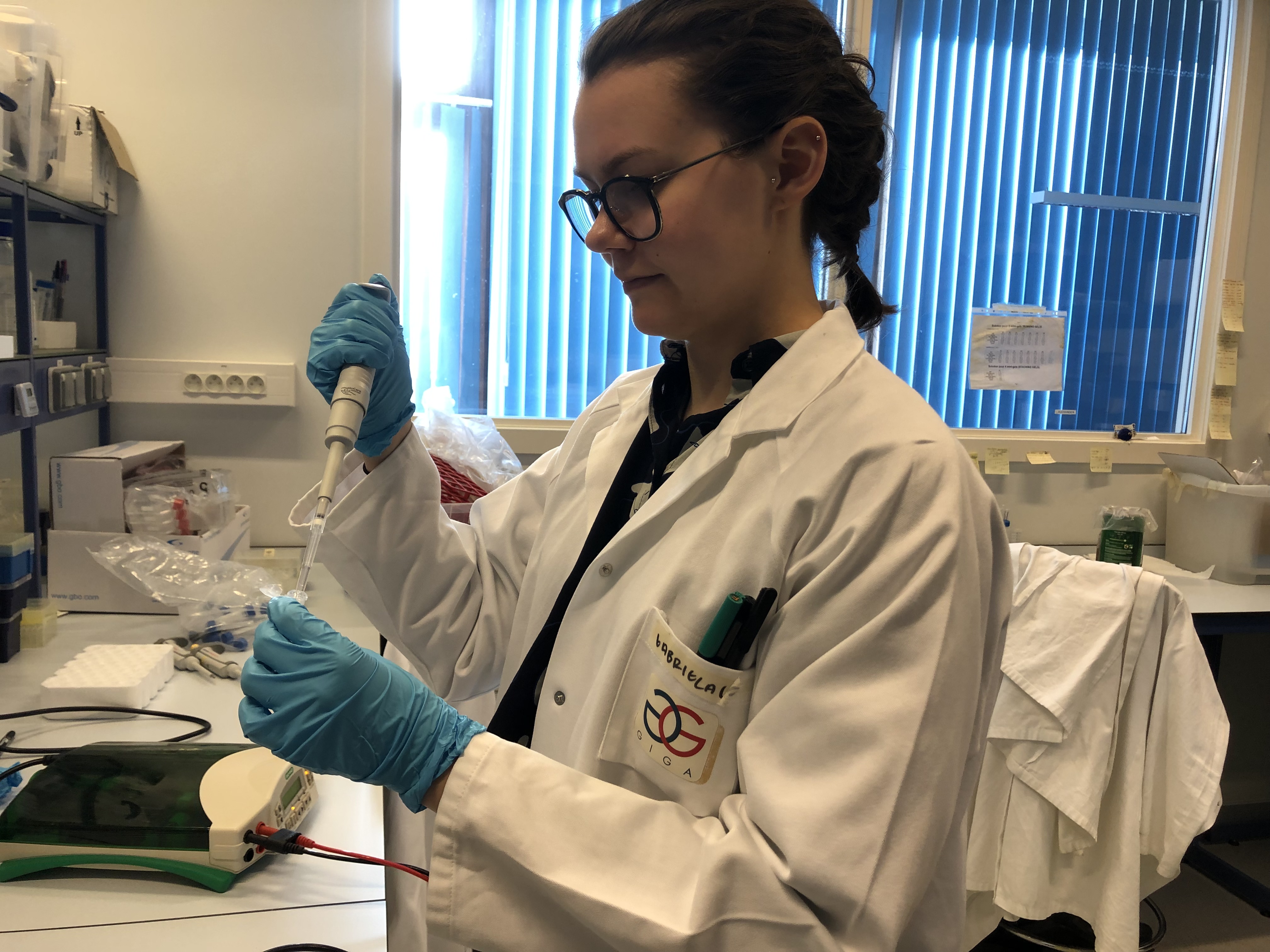Boston has established itself as a hub for ground-breaking research and top-notch labs, but it doesn’t have a monopoly on careers in science. In fact, the same thrilling, cutting-edge research and experiential opportunities are a big part of the Co-op experience for College of Science undergraduates. Second-year cell and molecular biology student Ella Brunsting is currently on her first Co-op, and like several of her peers, she went for a not-so-typical experience far from Beantown.
Ella wanted to “see the world”, while also staying true to her major. She created her own Co-op at the GIGA Institute, inside the Cellular and Molecular Epigenetics Laboratory, located in Liège, Belgium. She spoke to the process of creating her own co-op, stating:
I really wanted to work in an epigenetics lab for my co-op. I emailed labs all over the world to see if they would consider hiring me. Dr. Willems, the head of the lab, was one of the only ones who replied. He was eager to take me on as a research assistant.

Ella Brunsting working at the GIGA Institute, inside the Cellular and Molecular Epigenetics Laboratory
The GIGA Institute has multiple research labs, focusing on many different types of diseases and medicines. Ella’s lab focuses on a retrovirus named Human T cell leukemia/lymphotropic virus type 1 (HTLV-1). This virus causes a certain type of leukemia called Adult T-cell Leukemia (ATL). ATL largely affects the immune system while also causing lesions to form in the bones. Once diagnosed with ATL, most of those afflicted don’t survive more than a year. It is estimated that roughly 60,000 people were diagnosed with a form of leukemia in 2018, while there are an estimated 381,774 people living with, or in remission from leukemia in the US. Ella’s research is critical to saving lives and may lead to a reduction in the number of individuals affected each year.
The Cellular and Molecular Epigenetics Lab is working to better understand the mechanisms by which the two primary proteins, TAX and HBZ, interact. The genes that code for these proteins play critical roles in oncogenesis, which is the formation of tumors. It is believed these proteins can induce T-cell lymphoma and contribute largely to the development of ATL. Examining how these proteins interact and discovering a way to prevent the formation of them could lead to a potential cure.
Ella shared that every day in the lab is a little bit different depending on what experiments they are conducting that day:
Usually I spend at least part of the day working in the biology safety level 2 lab and part of the day working in the cell culture laboratory. Some some of the experiments we do include quantitative polymerase chain reaction (qPCR), western blots, and chromatin immunoprecipitation (ChIP). All of these lab techniques are necessary to observe interactions between DNA and proteins.

Ella Brusting in Bruges, Belgium.
Ella is also making the most of her time in Belgium outside of the lab. She has had the opportunity to travel throughout Europe on the weekends. This month she is planning a visit to Luxembourg, Copenhagen, Aachen (Germany), and Amsterdam. She says the ability to travel around has definitely been one of the best parts about doing her Co-op in Belgium.
She has also observed some cultural differences between Boston and Liège:
Something I’ve learned since moving here is that Belgians can’t handle snow. I couldn’t get to work one day because there was two inches of snow! Another surprising experience happened in my first week of work, as we had a meeting scheduled with the entire lab, and afterwards we were served a five course meal with lots of wine. The Belgians definitely know how to do things.
Ultimately, this Co-op opportunity has cemented Ella’s decision to go into epigenetics following graduation. The experience has also opened her eyes to how many fields epigenetics impacts, and just how many opportunities lie ahead. For Ella, her experience confirmed how broad Northeastern’s Co-op program is. She encourages fellow students to make their own path and open their minds to going anywhere in the world.

